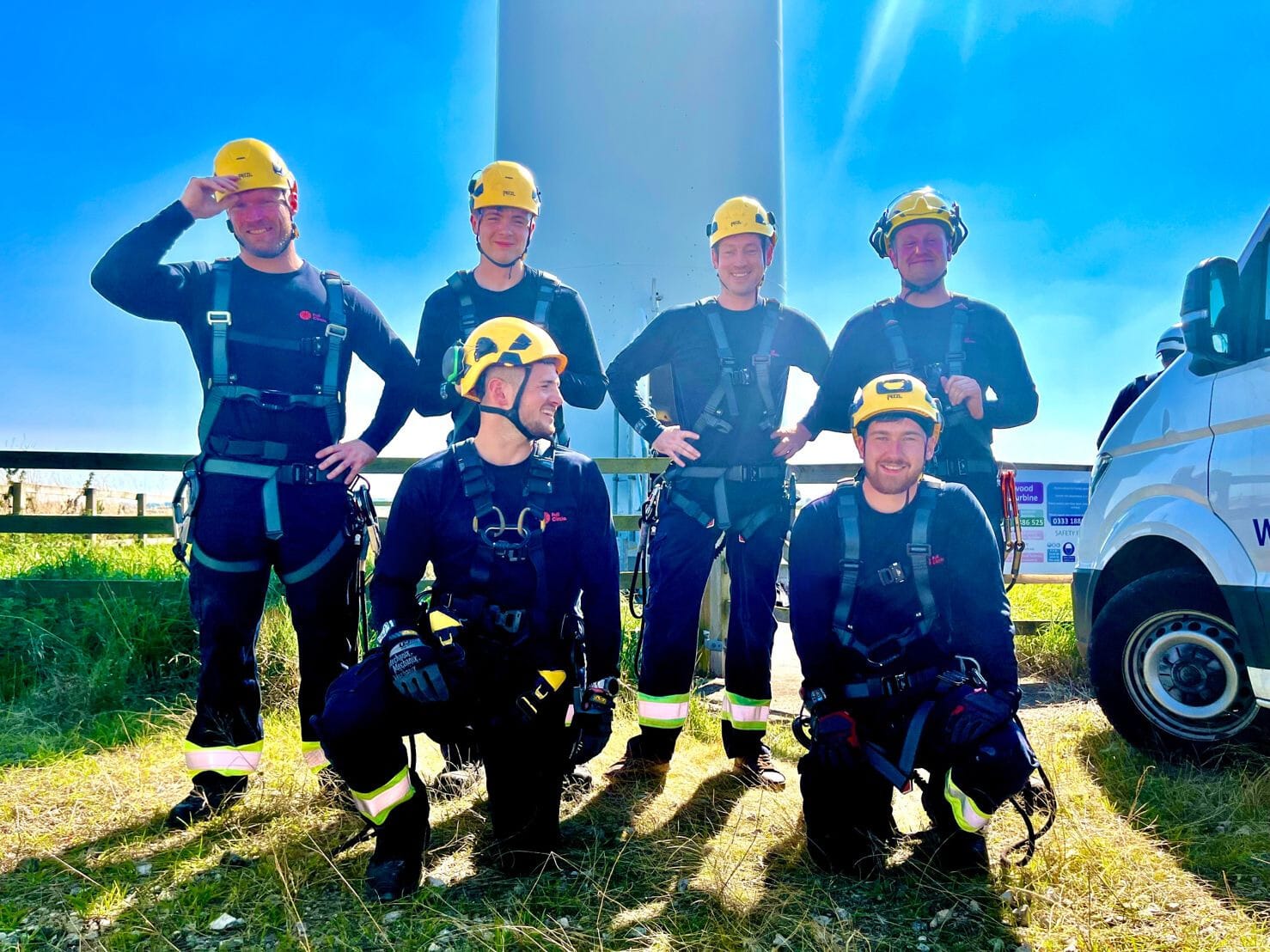Dreaming of a career servicing wind turbines? You're not alone. There's job security until retirement (as you will gain valuable inter-transferable knowledge which can be used in many (future) roles), millions of jobs to be created in the years to come, and it's a super exciting job. You'll get the freedom of traveling, the trust to make decisions in the field, and a chance to learn a wide range of skills in electrical work, mechanical tasks, and teamwork. Plus, you'll be outdoors, enjoying fresh air, and getting the best views ever.
We often hear questions like: “Do you have entry-level positions?” Or: “What does it take to be considered for an entry-level role?” Well, here’s our take on that!
GWO for Entry-Level Roles
Becoming a Service Technician isn't just about getting a GWO certification. Sure, you can’t do the job without it, but it's only the beginning. Any reputable company will (or should!) cover the cost of your GWO certification, so don’t waste your money getting it on your own. If a company values its employees and respects local laws, a GWO is a no-brainer.
What matters more to us is that you have basic knowledge of electrical wiring, understand the risks of working with high voltages, know how to read an electrical drawing, and grasp the basics of mechanical tasks. This isn’t for everyone!
You can prove your expertise through previous work, certifications, or diplomas. We can train you to climb (please don’t apply if you’re afraid of heights - yes, that happened before), teach you about turbines, and train you to work safely. What we can’t teach is your natural talent or interest in technical roles. If you need to invest in your entry into this industry, spend your money on gaining technical knowledge; we’ll cover your GWO and follow-up training!
The Realities of the Job
At Full Circle, we service wind turbines all over Europe. While we have some wind farms, many of our turbines are spread across different regions and countries. Turbines tend to be in rural, often remote, and windy areas. Working with the forces of nature can be challenging, but at Full Circle, we have clear safety guidelines and provide the best gear to keep you warm and dry!
Traveling to these remote locations is often underestimated. While it comes with freedom, it also impacts your time. Being home late, spending nights in hotels, and working in rotation are part of the job. Within the industry, we’re all looking for ways to provide a better work/life balance, but it remains a challenge.
At Full Circle, we offer flexible work options and various rotation schemes to ensure our team members have a balanced and fulfilling work experience. However, the nature of the job may not suit everyone or every family. Think about that before you dive in.
Training and Growth
Not all roles are beginner-friendly. One of the biggest challenges we face is maintaining a high level of knowledge across the industry. We’re working hard to onboard new people and give many the chance to join our mission towards a carbon-neutral world. However, it takes multiple training sessions and a few years in the field before you’re fully trained. Becoming an official mentor requires even more practice and additional skills. We need to balance experience and knowledge to ensure you learn from the best to become the best. We achieve this through high-quality on-the-job training.
Opportunities for Newcomers
So, what roles are available for people new to the industry?
We have vacancies that fit newbies, and this will be mentioned in the job description. Don’t get discouraged if you don’t succeed right away; someone will give you the chance eventually. Use your curiosity, network, and apply for roles that will benefit your long-term career. Don’t just send your CV to 100 companies; make sure you connect and take any opportunity to build experience.
Hopefully, this means you can start a service technician role right away.
If not, stay curious, take standby/on-call shifts, seek sponsored training in electrical or mechanical engineering, and look for apprenticeships (or equivalents in other countries). If you’re looking abroad, don’t just ‘dump’ your CV; research visa requirements and working cultures. Be smart and mention your work eligibility on your CV or in your motivation letter!
What’s Next?
We hope this article helps you take your next step. What will you do next? Identify potential employers? Get new training? Target different types of jobs? Network? Sometimes it takes perseverance, but the resilient ones will land well! Hopefully, that’s with us. If not, we can’t save the world alone; we need all the help we can get, so go get it somewhere else in this industry, and our paths will cross in the future!


